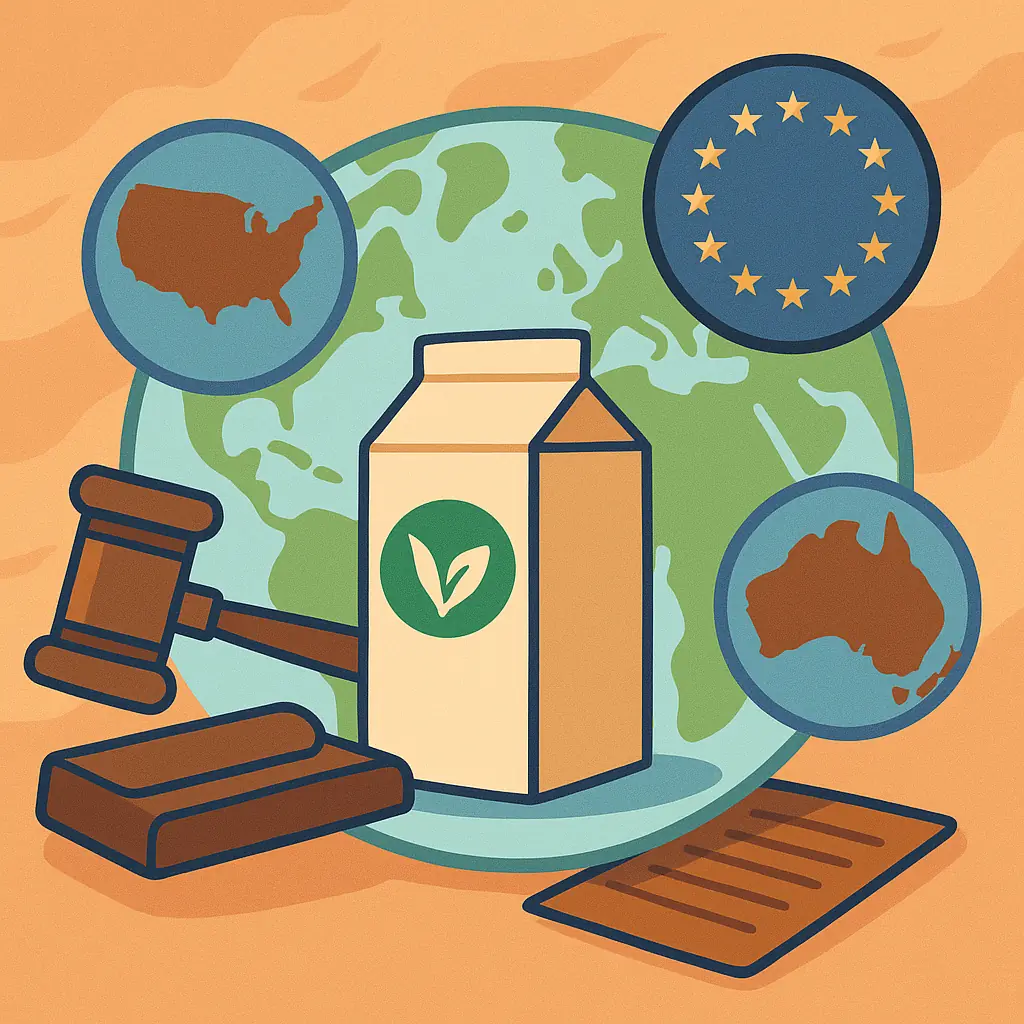Decoding Vegan Labels: Understanding Standards, Certifications, and Pitfalls
Navigating vegan labels can be a daunting task with varying standards and misleading terms. Our guide demystifies these labels for informed consumer choices.

Why Understanding Vegan Labels Matters
Decoding vegan labels is crucial for both ethical vegans and environmentally conscious consumers. Labels are meant to inform but often confuse due to inconsistency in regulations.
The plethora of vegan products hitting the market demands that consumers understand what these labels truly represent. Misleading terms can often lead to unintentional consumption of animal products.
Knowing how to interpret these labels not only helps in making informed choices but also reinforces trust in brands committed to ethical practices.
Legal Standards for Vegan Labeling
Legal standards for vegan labeling vary significantly across countries, creating a patchwork of regulations. In the United States, there are no federal guidelines specifically for vegan labeling, making it largely self-regulated by companies.
In contrast, the European Union has more stringent rules. The EU Regulation No. 1169/2011 on food information to consumers provides clearer guidelines, but interpretation still varies by member states source.
Australia and New Zealand have established clearer food labeling laws under the FSANZ code, yet 'vegan' as a term still lacks a standard legal definition. This inconsistency requires consumers to be diligent when purchasing products.
Understanding these variances is key to navigating the global market of vegan products. Consumers must rely on certifications and personal research to ensure a product meets their ethical standards.
Staying informed about these standards helps to support brands that genuinely uphold vegan principles, fostering a more transparent food industry.

Recognized Vegan Certifications
Certifications provide a layer of trust when legal standards are absent or unclear. The Vegan Society and Vegan Action are two prominent organizations offering certification in the US and UK.
Products bearing certifications from these bodies undergo rigorous testing to ensure they contain no animal-derived ingredients and have not been tested on animals. Look for their logos on packaging for assurance.
However, not all certifications are created equal. Some labels may apply different criteria or exclude specific considerations like cross-contamination. It's essential to understand the certification standards behind each logo.
Common Misleading Terms on Labels
Labels like 'plant-based', 'cruelty-free', and 'sustainable' are often mistaken for vegan. However, these terms do not guarantee a product is entirely free from animal products.
For instance, a 'plant-based' label might still include honey, while 'cruelty-free' denotes no animal testing rather than no animal ingredients. Consumers should scrutinize ingredient lists to avoid unwittingly supporting non-vegan practices.
Deciphering Ingredient Lists
Ingredient lists can be a maze of scientific terminology, often concealing non-vegan components under unfamiliar names.
Here are some common animal-derived ingredients to watch for:
- Casein: A milk protein found in cheese and other dairy products.
- Gelatin: Derived from collagen found in animal bones and tissues.
- Carmine: A red pigment made from crushed cochineal insects.
- L-Cysteine: Often derived from poultry feathers, used in baked goods.
- Isinglass: A fish-derived product used in beer and wine filtration.
By familiarizing yourself with these terms, you can better navigate ingredient lists and ensure the products you choose align with your vegan lifestyle.
The Role of Technology in Identifying Vegan Products
Technology is streamlining the process of identifying vegan products with apps and online databases. These tools allow users to scan barcodes and access detailed product information instantly.
Apps like 'Is It Vegan?' and 'HappyCow' have become popular among vegans for their extensive databases and user-friendly interfaces source.

Such advancements empower consumers to make informed decisions quickly and easily, transforming the shopping experience for those adhering to vegan lifestyles.
Challenges and Opportunities for Vegan Brands
Vegan brands face the challenge of maintaining transparency and trust amid a competitive market. Clear labeling and adherence to ethical practices are crucial in setting themselves apart.
Brands that engage directly with consumer queries and offer detailed information about their sourcing and production processes often win over conscientious consumers.
Moreover, as the demand for vegan products rises, there is a growing opportunity for brands to innovate and lead in ethical consumerism.
Partnerships with recognized certifying bodies and technological integrations can enhance brand credibility and visibility.
These efforts not only benefit consumers but also contribute to a more sustainable and ethically aligned market, fostering a community of educated and empowered shoppers.
Conclusion
Understanding vegan labels is essential for making ethical consumer choices. With varying global standards and the potential for misleading terms, it is vital for consumers to educate themselves.
By leveraging certifications, technology, and a keen eye for detail, consumers can confidently navigate the vegan product landscape and support companies committed to genuine ethical practices.


